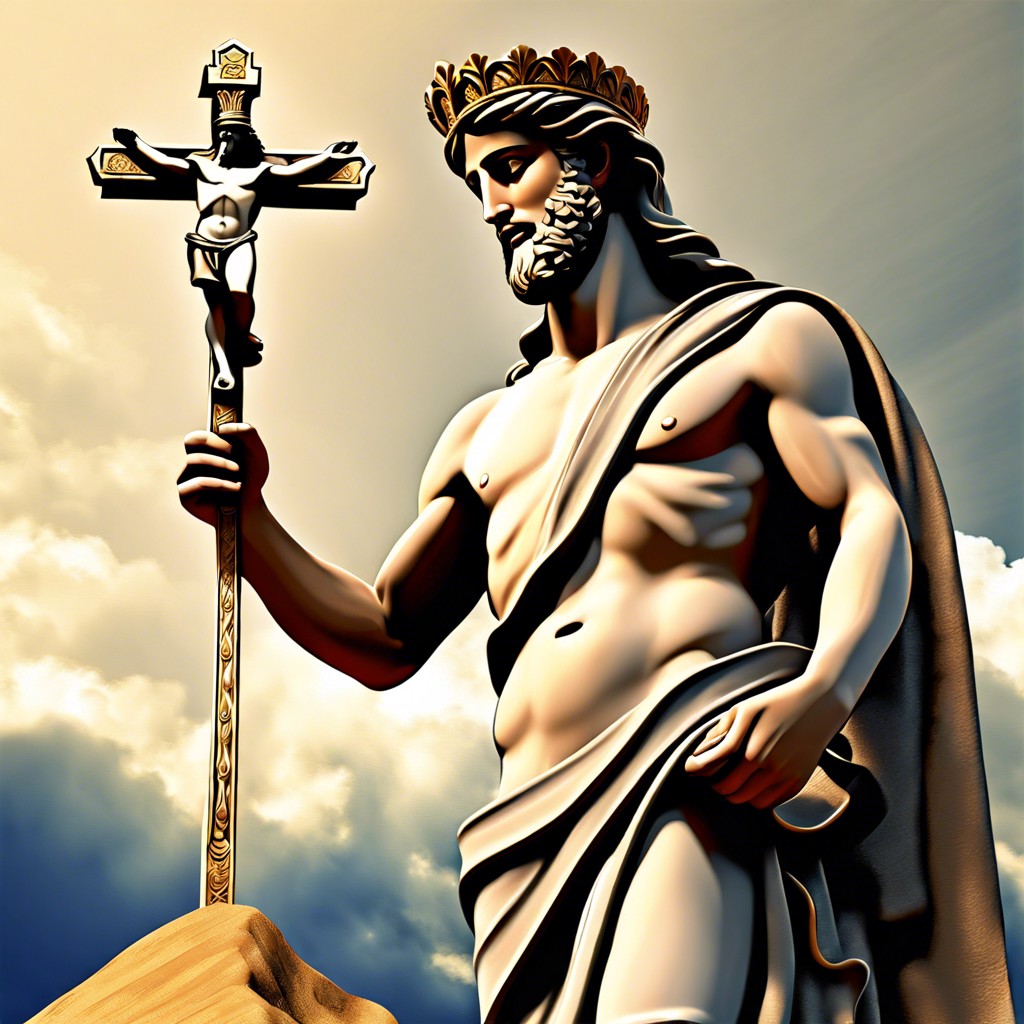Discover the profound spiritual significance and historical legacy behind the name David.
The name “David” carries rich historical and spiritual significance, from its biblical origins to its deep Hebrew meaning. This exploration dives into its profound symbolism, influential bearers, and far-reaching impact throughout history, ensuring you uncover every nuance of this timeless name.
Key takeaways:
- David, a biblical figure known for bravery and faith.
- Hebrew meaning of David: “beloved” or “uncle.”
- Historical impact: religious, cultural, royalty, literature, and arts.
- Symbolism: courage, faith, beloved, leadership, spiritual connections.
- Famous bearers: King David, Michelangelo, David Bowie, David Copperfield.
Biblical Origins and Significance

In the Bible, David is one of the most significant figures. He was the second king of Israel and is known for his leadership, bravery, and faith in God. His story is detailed in the books of Samuel, Kings, and Chronicles.
David is renowned for defeating the giant Goliath with a single slingshot, demonstrating his courage and deep trust in divine power. He was also a talented musician and is traditionally credited with composing many of the Psalms, which are central to worship in both Christian and Jewish traditions.
Importantly, David’s lineage is significant because Jesus Christ is often referred to as the “Son of David,” linking the Old Testament to the New Testament and fulfilling messianic prophecies. This connection underscores David’s crucial role in the spiritual heritage of Christianity.
David’s reign is marked by both tremendous triumphs and human flaws, adding depth to his character and making his story relatable for many believers.
Meaning and Translation in Hebrew
The name David derives from the Hebrew name “דָּוִד” (Dawid). It means “beloved” or “uncle.” This Hebrew origin reflects a sense of deep affection and connection.
Ancient texts reveal that David is consistently portrayed as a favored individual, cherished by God and people alike. The name’s phonetic composition is simple, yet it carries profound emotional resonance.
In Hebrew culture, names weren’t just labels. They conveyed the essence and destiny of a person. Therefore, naming a child David suggested a wish for a positive, loving life.
The widespread use of this name over centuries highlights its enduring appeal and meaningful significance.
Historical Impact and Influence
Throughout history, the name David has resonated with political and cultural significance. King David of Israel, a central figure in religious texts, united the tribes of Israel and established Jerusalem as its capital. His legacy continued to inspire subsequent leaders and was a symbol of unified leadership.
In medieval Europe, the name David was revered among Jewish communities, honoring their biblical ancestor. The name became a popular choice among European royalty as well, reflecting strength and wisdom.
In literature and the arts, David’s name appears frequently, signifying heroism and divine favor. Michelangelo’s statue of David represents the triumph of human spirit and intellect. This deep historical context continues to influence contemporary bearers of the name, reminding them of the enduring legacy associated with it.
Symbolism and Spiritual Interpretations
David is frequently associated with courage and faith. The story of David and Goliath symbolizes overcoming obstacles through trust in divine guidance. This theme resonates with those who view David as an exemplar of inner strength.
His name signifies beloved, which evokes feelings of warmth and deep connection. This can be seen as a reminder that we are all cherished by something greater.
In Kabbalistic tradition, David is linked to the divine aspect of kingship, symbolizing leadership grounded in humility and spirituality. This reflects the balance between leading others and serving a higher purpose.
These interpretations inspire personal growth and deeper spiritual connection for many.
Famous Bearers of the Name and Their Contributions
Throughout history, many notable figures named David have made significant contributions in various fields. King David, a central figure in the Bible, is renowned for uniting the tribes of Israel and establishing Jerusalem as the political and spiritual center. His legacy includes the Psalms, which continue to inspire millions.
In the realm of art, Michelangelo’s sculpture of David stands as a symbol of Renaissance beauty and human strength. This masterpiece is not just a statue but a representation of courage and faith.
In literature, David Copperfield, the character created by Charles Dickens, exemplifies resilience and personal growth. His story reflects the human capacity to overcome adversity.
More contemporary Davids, such as David Bowie, have left an indelible mark on music and culture. Bowie was a pioneer in the music industry, known for his innovative sound and transformative stage presence.
Each of these individuals has aptly embodied qualities often associated with the name David: leadership, creativity, and resilience.





